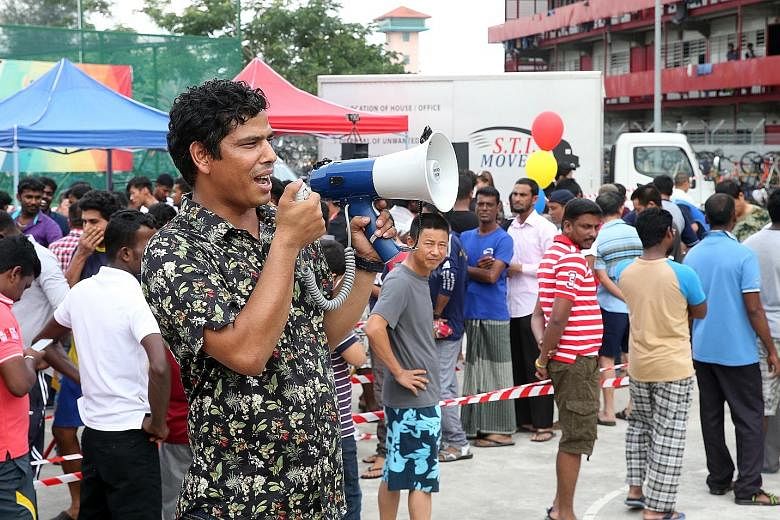For Bangladeshi construction worker Mohammed Mukul Hossine, Hari Raya Aidilfitri starts at 5am with a teary long-distance phone call from his mother.
It used to be his favourite day of the year, but since he started working in Singapore seven years ago, Aidilfitri has lost its shine.
"I can only think, how are Mama and Papa? What are they doing today? And I know they will also think of me, and cannot enjoy," said Mr Mukul, 26, the second-youngest of eight siblings.
"When Mama calls me in the morning, I really cannot take it. She will ask, 'Have you woken up already? Have you showered? Why are you crying again? Don't cry!' But I just cry more."
He usually pools money with fellow workers at the dormitory to buy ingredients for briyani, which they cook the night before Aidilfitri. Then, he tries to distract himself from thoughts of his family.
The first year here, Mr Mukul went to the Singapore Zoo with friends. This year, he plans to have a day out at Sentosa.
When he was still living in Panbari village in Bangladesh, Aidilfitri was a time of mischief and merriness. He would spend the day playing pranks on family and friends, and on reunions with neighbours who were away most of the year working in cities.
"The two or three days before Hari Raya, all of us couldn't sleep well. There were so many people to meet, so many things to do: bring in sunflowers to decorate the house, buy new clothes," he said.
Mr Mukul recalls waking up to the smell of his mother's paesh, a Bengali-style rice pudding. He would then creep out with one of his sisters to collect duck eggs, and harvest some rice their father grew to give to needy villagers.
"We always see people in our village who have very little. And we were also very poor, but my sister and I felt we had enough, so we wanted to make people who need it happy on Hari Raya," said Mr Mukul, whose poetry book Me Migrant was published by Singapore's Ethos Books last year. "This is the happiest day of the year, so we wanted them to feel it too."
Even now, he sees Aidilfitri as a time for charity. He started working with volunteer group Migrant Matters last year to give out donated food, clothing and other necessities to migrant workers.
"Because Hari Raya is not the same like any other day, (whether) you are rich, or you are poor. On Hari Raya, we forget all about that, celebrate together, pray together, be together," said Mr Mukul.

